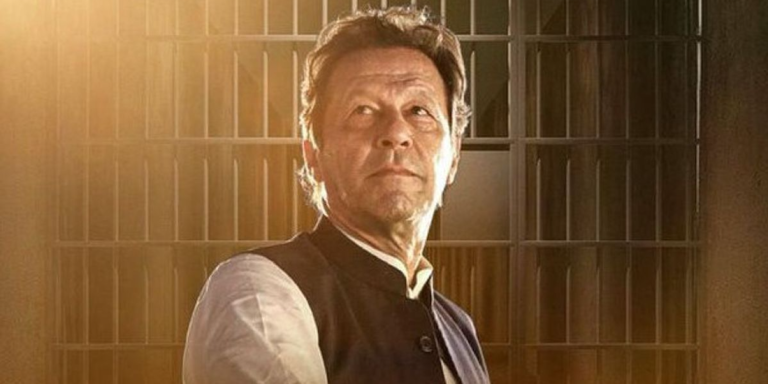
From Cricket Hero to Political Prisoner: The Military’s Shadow Over Pakistan’s Democracy
New York, N.Y. — Once celebrated as a cricket legend and later as a populist prime minister, Imran Khan now languishes behind bars, his political movement crushed under the weight of a military coup.
The arrest and imprisonment of Khan, Pakistan’s most prominent opposition leader,
marks a stark escalation in the country’s descent into authoritarian rule,
where the military junta consolidates power while silencing dissent.
The Rise and Fall of Imran Khan
Imran Khan’s ascent to power in 2018 was fueled by promises of eradicating corruption and establishing a “New Pakistan.” Backed by the military establishment, his Pakistan Tehreek-e-Insaf (PTI) party won a contentious election.
Yet, his relationship with the generals soured as he attempted to assert civilian control over foreign policy and military appointments.
By April 2022, Khan was ousted in a no-confidence vote widely believed to be orchestrated by the military. His subsequent arrest in May 2023, on dubious corruption charges, signaled the junta’s resolve to eliminate him from politics.
A Crackdown on Democracy
Since Khan’s removal, Pakistan has witnessed a brutal suppression of political opposition. The PTI has been systematically dismantled—its leaders arrested, its candidates barred from elections, and its media presence erased.
The military, long the true power behind Pakistan’s fragile democracy, has abandoned even the pretense of civilian rule. Human Rights Watch and Amnesty International have condemned the widespread human rights abuses, including enforced disappearances and extrajudicial killings of Khan’s supporters.
International Silence and Strategic Interests
Despite the erosion of democracy, Western powers have been conspicuously muted in their criticism. The U.S. and E.U., wary of destabilizing a nuclear-armed state, continue to engage with Pakistan’s military leadership on counterterrorism and regional security.
Meanwhile, China, Pakistan’s closest ally, has doubled down on economic investments, further emboldening the junta. The U.N.’s tepid response underscores the geopolitical calculus that often sidelines democratic principles.
What Comes Next for Pakistan?
With Khan imprisoned and his party neutered, the military has cleared the path for a puppet government. Elections, if held, will be a sham, ensuring continued military dominance.
The question now is whether Pakistan’s civil society, already battered by economic crisis and repression, can mount a resistance—or if the country is destined for prolonged authoritarian rule.
Imran Khan’s Political Fall: Pakistan’s Junta Tightens Grip on Power (July 9, 2025)
Summary for Audio
Former Pakistani Prime Minister Imran Khan, once a national icon, now sits imprisoned following a military-backed coup. His party, PTI, has been crushed, and Pakistan’s democracy hangs by a thread. With the generals tightening their grip, the world watches—but will it act?